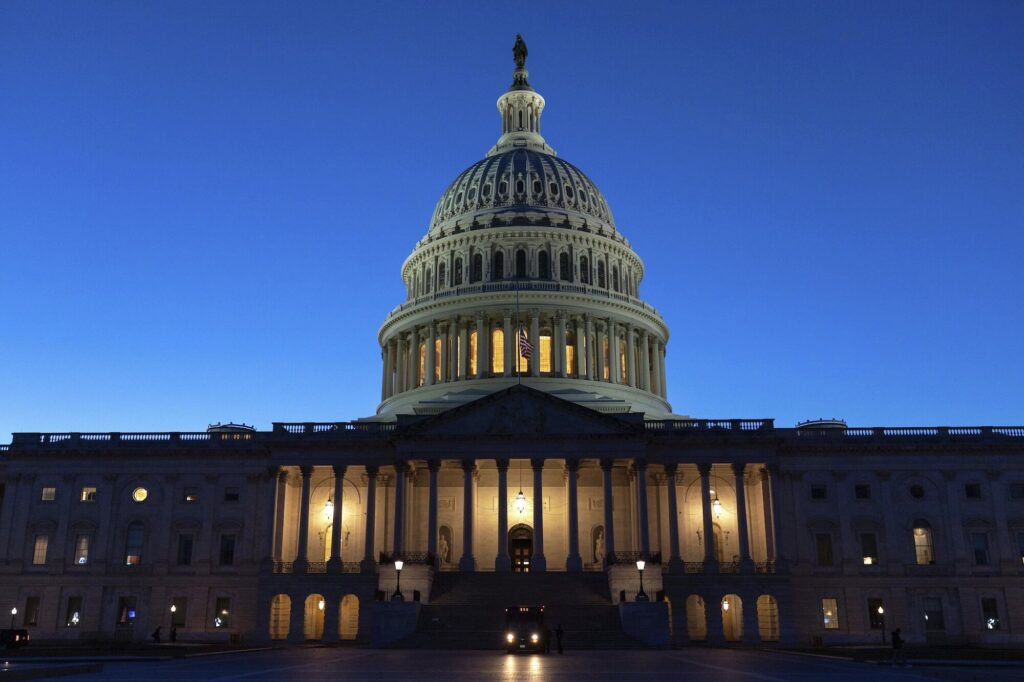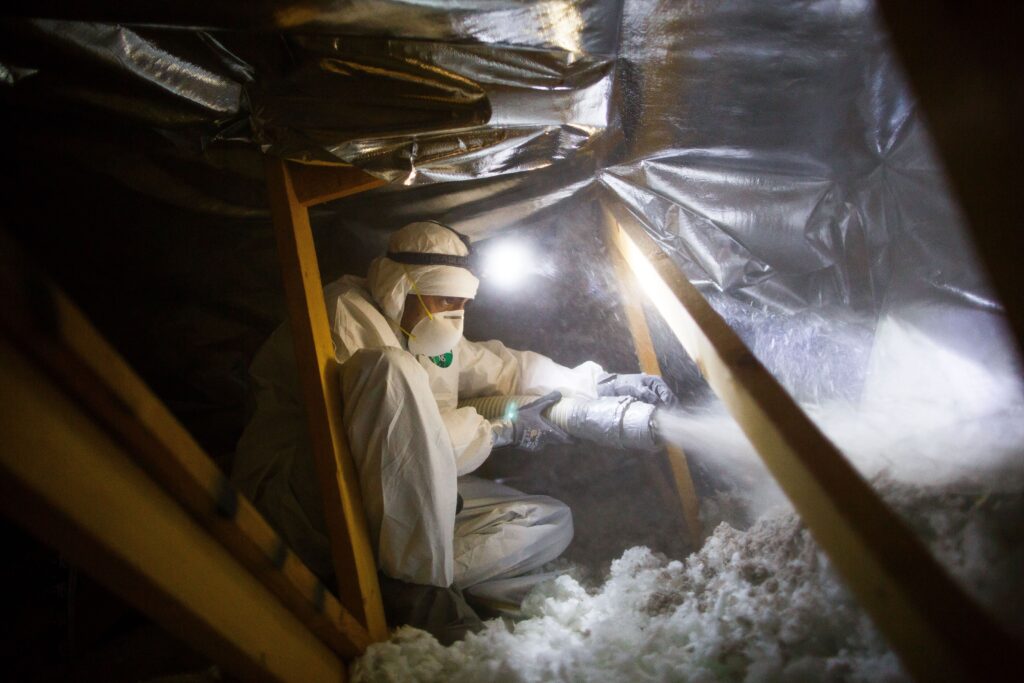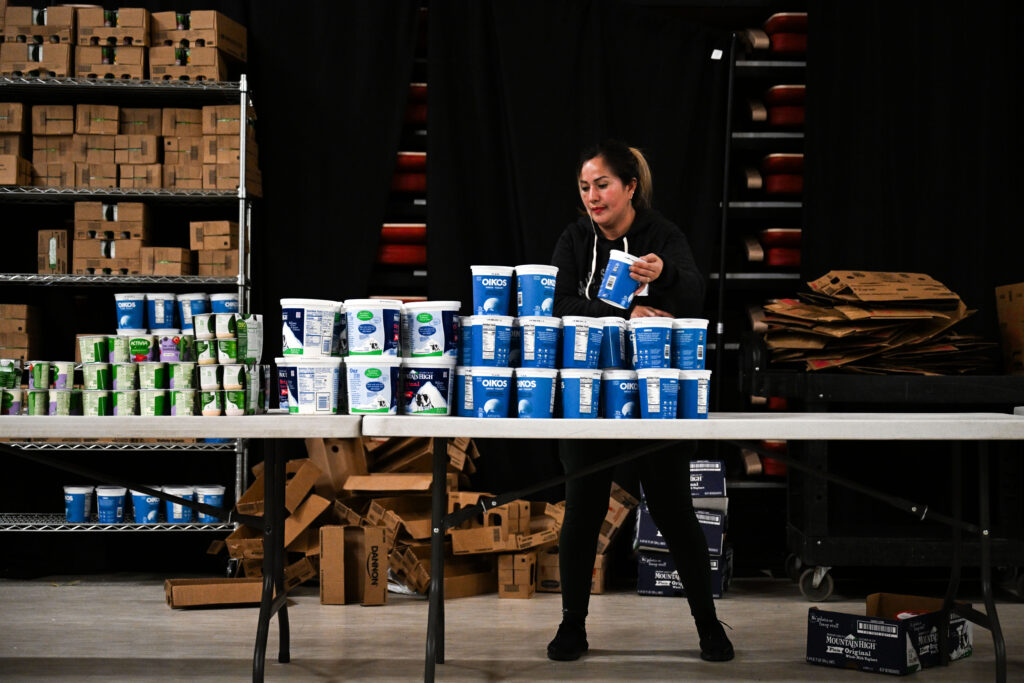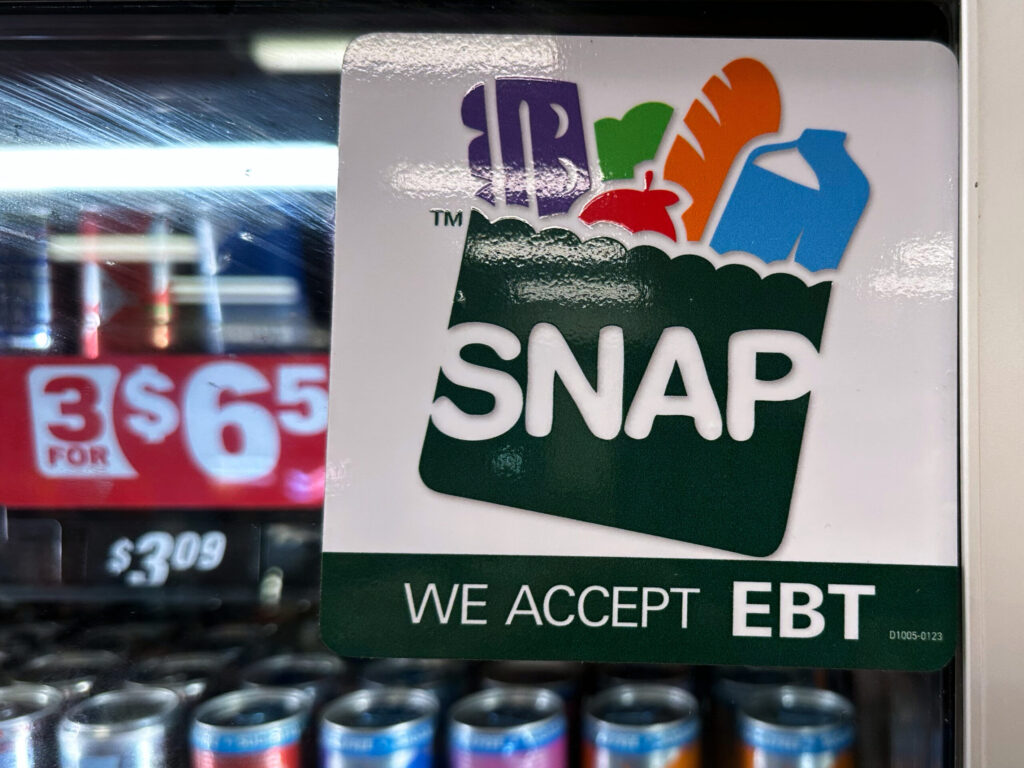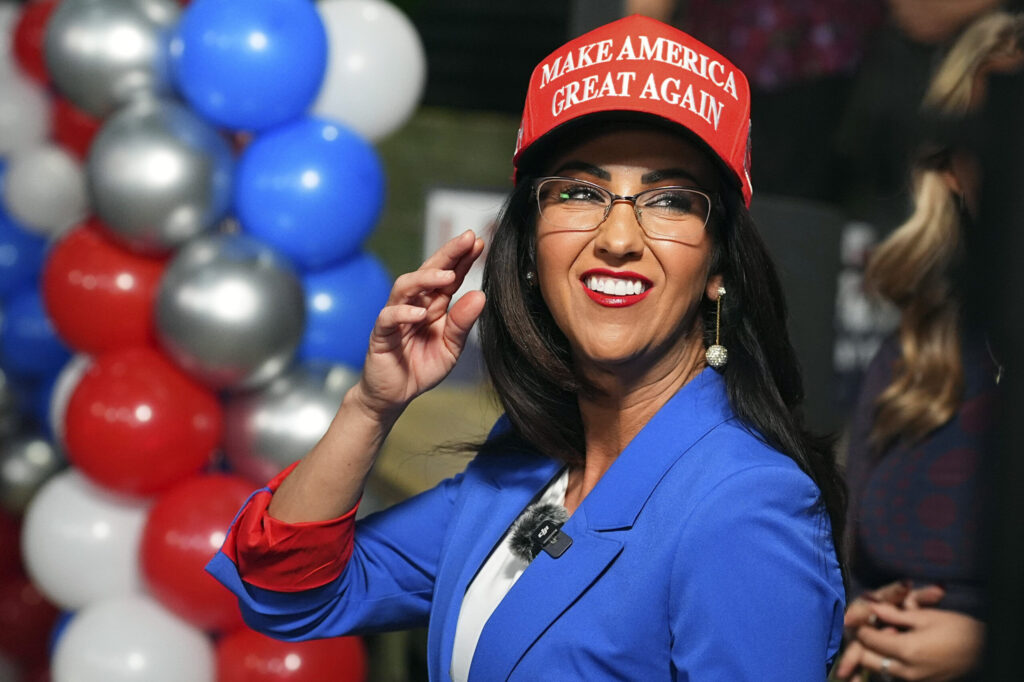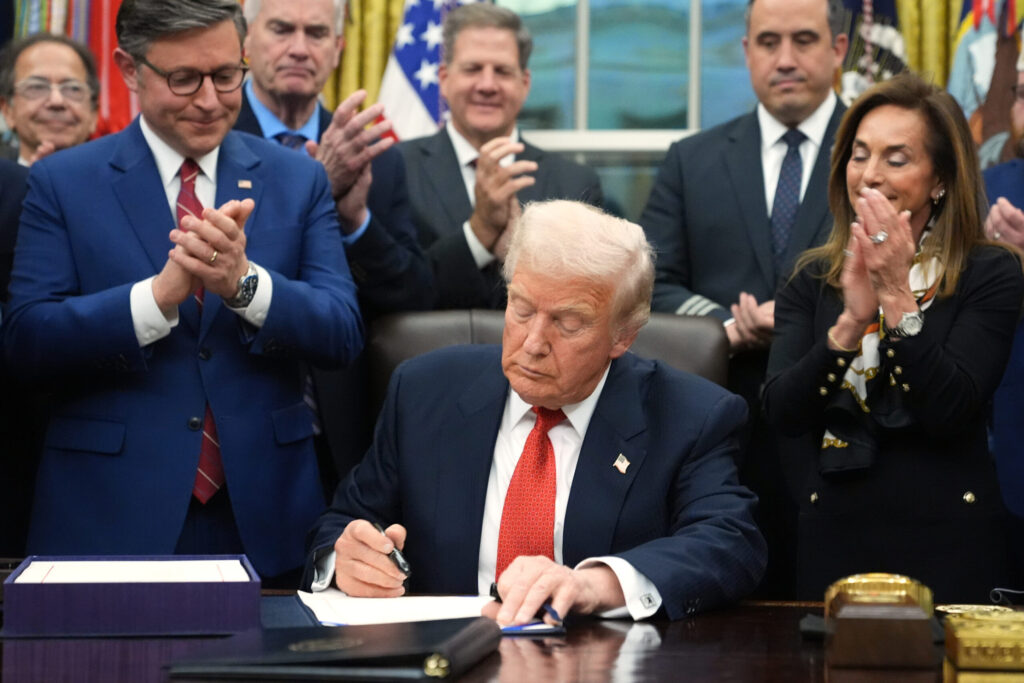Colorado front and center amid Dem debate’s Vegas razzmatazz
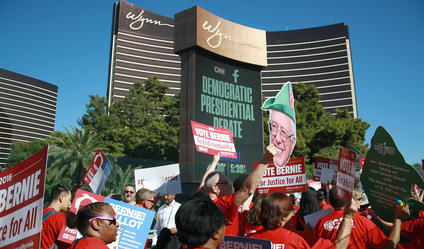
LAS VEGAS — If you thought Colorado had a prominent role in the most-recent Republican presidential debate — when the state’s marijuana laws prompted Jeb Bush to publicly confess his pot-smoking habits as a youth — the first Democratic debate in Las Vegas on Tuesday put the state in the national limelight on multiple fronts.
Granted, the marijuana question didn’t take up quite as much airtime as it did during the GOP meet at the Reagan Library last month. But it displayed how cautious frontrunner Hillary Clinton is about the issue.
When CNN Español’s Juan Carlos Lopez — one of the debate’s co-moderators — asked whether the candidates would vote for a 2016 Nevada ballot issue to legalize recreational marijuana, Clinton kicked the can down the road.
While Vermont Sen. Bernie Sanders was quick to say that he would vote yes, the former first lady, New York senator and secretary of state sidestepped. She drew a contrast to the Republican likes of New Jersey Gov. Chris Christie, who doesn’t think it’s a good idea for states to test legalized recreational marijuana. But Clinton also argued for further research and said states such as Colorado provide the opportunity to “find out a lot more about recreational marijuana than we know today.”
For Colorado Democratic Party chair Rick Palacio, who sat in the audience on Tuesday, the question wasn’t debated enough.
“I’m disappointed the marijuana question wasn’t asked of all the candidates,” he wrote on his Facebook page later that night. None of the other Democratic candidates on stage — Former Maryland Gov. Martin O’Malley, former Viginia Sen. Jim Webb and Rhode Island Sen. Lincoln Chafee — got the chance to offer their take on the issue.
Aurora shooting victim’s family puts spotlight on gun issue
Another, more prominent issue drew the focus to Colorado’s history of mass shootings. In the wake of the latest massacre in Roseburg, Ore., O’Malley invited the parents of 24-year-old Jessica Ghawi, one of the victims of the Aurora theater shooting, as his guests in the debate audience in to advance his platform of gun control.
Lonni and Sandy Phillips recently made national headlines when a judge dismissed their lawsuit against Lucky Gunner LLC, a store that sold James Holmes thousands of rounds of ammunition online, because Colorado and federal laws shield firearms and ammunition sellers from liability. Instead, Colorado Senior District Judge Richard Matsch ordered the Phillipses to pay the case’s legal fees — a tab of more than $200,000.
On Wednesday, the day after the debate, O’Malley doubled down on his proposals for gun control. Those include banning combat assault weapons, using the buying power of the federal government — the largest customer for guns and ammunition — to pressure manufacturers into adopting tougher tracking mechanisms, as well as adopting universal background checks and making it a felony to illegally traffic firearms across state lines.
At a rally at the College of Southern Nevada, whose president Michael Richards led the recent fight in the state against “campus carry” laws, the Philipses joined O’Malley to advocate for a 2016 Nevada ballot question that would make universal background checks mandatory in the state.
“We’ve had talk, we’ve had a lot of prayers, but what we haven’t had enough of are the referendums that send this to the ballot, that put it up and on the table of our democracy — whether it is in a city or a county or a state,” O’Malley told a room of a handful of listeners and an equal numbers of reporters.
“There are many levers to progress. There are other issues that made people say, ‘That’ll never happen.’ Think of how quickly marriage equality moved. Part of it was state effort, part of it was courts, and part of it was a national effort.”
Nevada, Colorado part of Rockies firewall strategy
Tuesday also saw events in Las Vegas acknowledging Nevada’s role as an early caucus state and a general election battleground. The Republicans will hold a primary debate here on Dec. 15, and the University of Nevada Las Vegas will play host to the third and final general election debate next fall.
Hours before the debate at the Wynn Las Vegas, the American Enterprise Institute and Brookings Mountain West, two Washington, D.C.-based think tanks, sponsored a “Democrats and Demography” panel discussion. The presentation underscored just how much politics have changed in the Rocky Mountain West over the years.
“There is a strategy now, and the Democrats know the strategy well, where this part of the Southern Rocky Mountain West is a firewall to get to 270 electoral votes,” said Robert Lang, a political scientist at UNLV. Add up Nevada (six electoral votes), Colorado (nine) and New Mexico (five) — and the region’s 20 electoral votes can offset a loss in a hyper-competitive large state such as Ohio, Lang argued.
“There’s no guarantee that if you win Las Vegas, you can win the Front Range of the Rockies which has a similar demographic profile in terms of Latinos and in terms of diversity,” Lang admitted. But, he added, “The point is: If you can’t win in Las Vegas because you make flip remarks regarding diversity, if you are insensitive to the population, chances are you are going to alienate voters of a similar background in other swing states.”
Lars Gesing is assistant director of CU News Corps, an explanatory journalism project at the University of Colorado Boulder. Gesing, a former intern at The Colorado Statesman, is traveling the country, visiting every presidential battleground state for his project “States in Play.”




